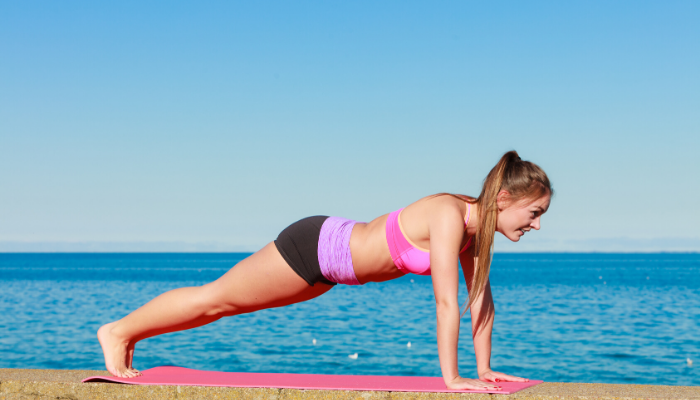
Summer is a perfect time of year to be active outside, with a massive wealth of exercise options available for fun in the sun. Of course, as we get into the hottest part of the year, it doesn’t take as much to break a sweat, and just living with the heat can be exhausting on its own. While it’s important to keep up a workout routine even through the scorching weather of July and August, you should also be aware that hot, sticky weather can have a major effect on the way your cardiovascular system functions. Make sure that you’re taking the right precautions to avoid the heat-related complications that physical exertion can bring about when the mercury rises.
What Does Heat Do to Your Heart?
High heat can affect your heart and cardiovascular system in a number of ways. When it’s hot out, your heart needs to work harder than it would under ordinary circumstances in order to keep your body cool. Sweating also makes your body lose water faster, which can cause potentially serious loss of blood volume and an accompanying drop in blood pressure. People who are currently taking medication for heart disease should also be aware that many kinds of heart medication can also impact the way that your body responds to high temperatures.
Here are ten important steps to counter the natural stress that summer heat can put on your body.
Drink Water
Staying hydrated is important no matter the time of year, but hot, humid weather causes you to sweat, increasing the rate at which your fluids need to be replenished. Sports drinks like Gatorade advertise electrolytes and other nutrients that can produce energy, but they’re also very high in sugar, and there’s just no substitute for good old H2O. Drink water often, and not just when you feel thirsty, to keep your body functioning at maximum capacity.
Talk to Your Doctor Beforehand
If you have any concerns about how your workout regimen is going to affect your body, particularly if you have any pre-existing heart conditions, it’s smart to consult your physician beforehand. If you are trying a new kind of exercise, your doctor can offer advice on how not to overexert yourself. Additionally, a physician can advise you on the potential side effects of any medications you are currently taking.
Take Breaks
Trying to push yourself too hard for too long increases your risk of overheating. Try to keep intervals of strenuous exercise short so that your heart won’t have to work quite so hard.
Avoid the Hottest Parts of the Day
On a sweltering summer day, the heat is most intense when the sun is highest, between the hours of 10:00 AM and 3:00 PM. When possible, try to get your workout in early, before the temperature hits its height. If you’re not a morning person, it’s not a bad idea to wait until the shadows get longer and the heat subsides a little.
Dress Appropriately
Make sure not to overdress! Wearing light, breathable clothing is key to keeping your body temperature at a healthy level. Moisture-wicking fabrics are great for allowing sweat to evaporate more quickly. You should also avoid clothes that are black and other dark colors, as these attract and retain more heat.
Take Cold Showers
It might not seem like it makes much sense to shower before your workout, but a cold shower can help cool your body and give you a lower baseline body temperature at the start of your workout.
Use Sunscreen
Plenty of us enjoy taking in some sun, but there’s nothing fun about getting burned! Make sure you’re regularly applying sunblock, and make sure it’s a type that offers enough sun protection (use an SPF of at least 30).
Stay in the Shade
When possible, try to exercise somewhere that isn’t entirely exposed to direct sunlight. Shady, forested trails are ideal locations for taking a jog during the hottest part of the season.
Tailor Your Workout to the Weather
It’s good to have a backup plan for when it’s dangerously hot outside. On hotter days, try a cooler exercise like biking, which allows you to catch more of a breeze, or going for a swim!
Drink More Water
Seriously. Have a glass right now why don’t you. It couldn’t hurt!



